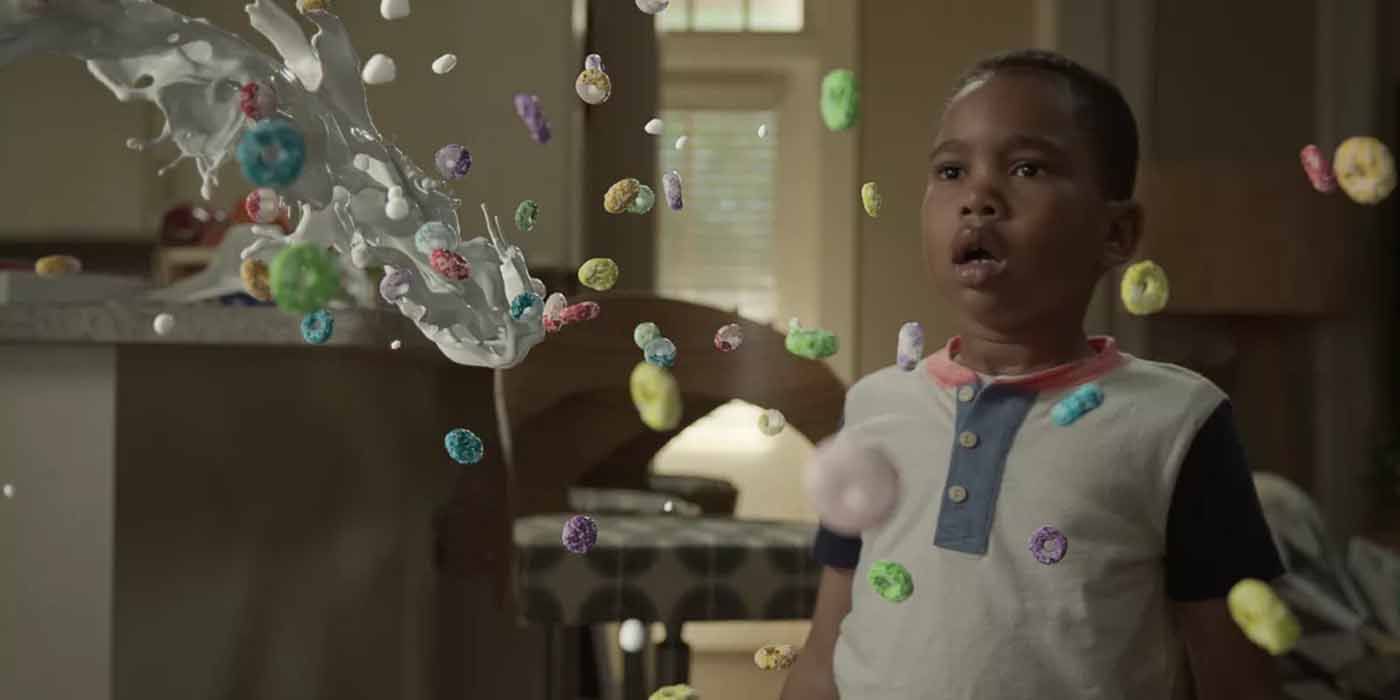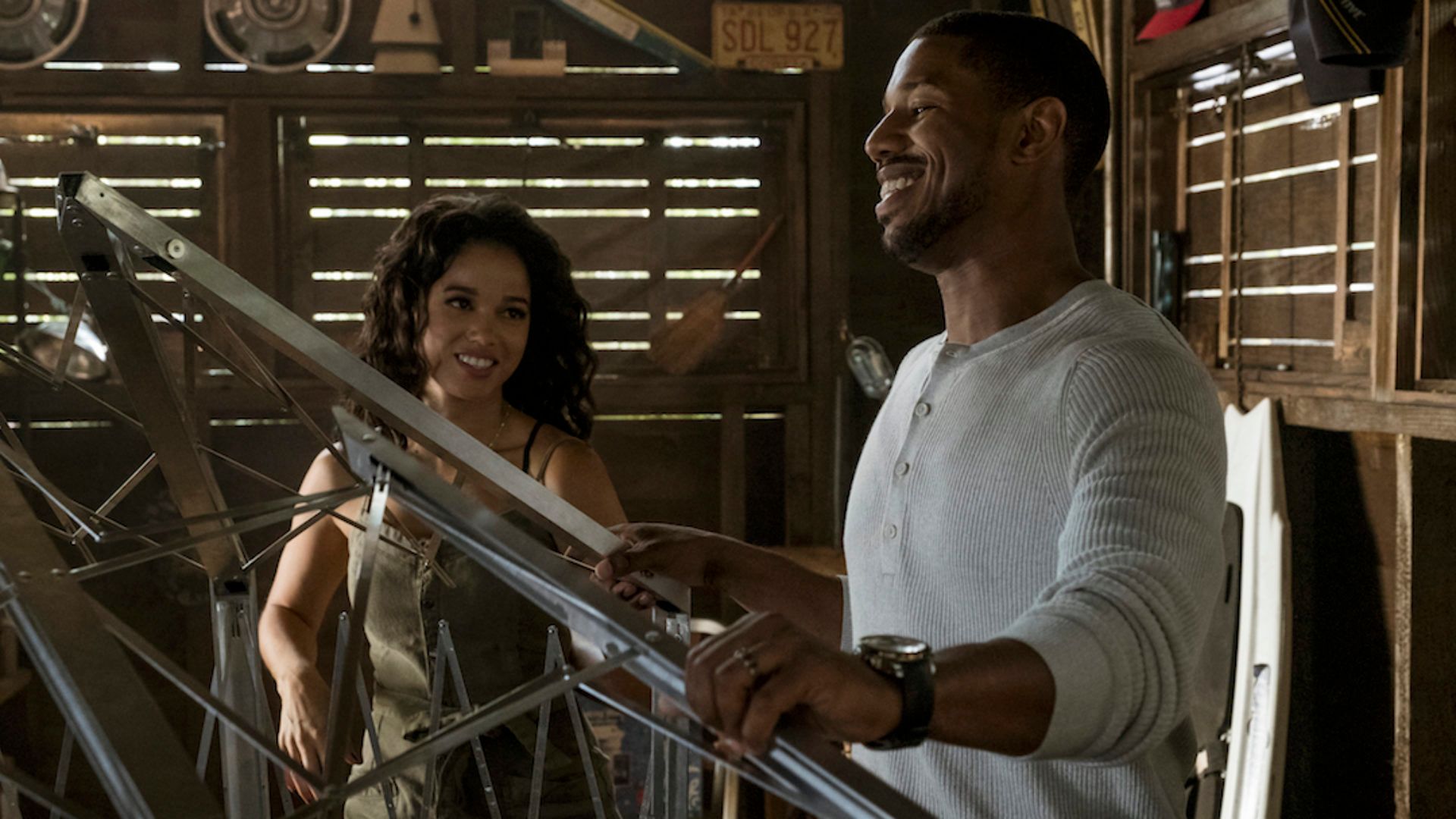The trailer-style short film and single comic-book issue that creator Dennis Liu released for Raising Dion in 2015 garnered a lot of online attention, but they offered only a brief tease of what kind of substantial, long-form story they might tell. The idea of a black single mother raising her superpowered young son struck a chord with a large audience, enough that Netflix picked up Raising Dion for an entire series, which clumsily and ineffectively expands on Liu's initial concept. Created by veteran TV writer-producer Carol Barbee, the Raising Dion series makes a few admirable efforts at social commentary, but it mostly combines a rote superhero story with equally rote family drama.
As in Liu's short film and comic, the core relationship of Raising Dion is between 7-year-old Dion (Ja'Siah Young) and his mother Nicole (Alisha Wainwright), who is raising her son on her own after the mysterious death of his father Mark (executive producer Michael B. Jordan, seen mostly in occasional brief flashbacks). Dion is a normal kid who loves video games, LEGO and comic books, and along with his godfather Pat (Jason Ritter), Mark's co-worker and best friend, he indulges in make believe about doing magic and having superpowers. That is, until he manifests actual superpowers, first demonstrating telekinesis and later expanding into teleportation, electricity manipulation and more.
Nicole is shocked and worried about Dion's new abilities (and particularly about his seeming inability to control them), but Pat is nearly as excited as Dion is, appointing himself his godson's mentor and working to teach him how to hone his powers. Pat also works for the show's requisite vaguely sinister, all-encompassing tech corporation Biona, which clearly bears some responsibility for the existence of Dion's powers, and may be monitoring his actions. Mark worked at Biona, too, and the show slowly doles out back story about the secret experiments that may provide an origin story for Dion and others like him.
The combination of boilerplate superhero mythology with family melodrama and an obsession with comic books makes Raising Dion most closely resemble unwieldy superhero drama Heroes, albeit focused mostly on a single superpowered character. The episodes are numbered as "issues," and each episode's title is a comic book reference, but like Heroes, Raising Dion has a mostly superficial understanding of superhero-comics storytelling. Heroes writer and producer Michael Green is also an executive producer on Raising Dion, and the PG-rated, family-friendly action could easily be part of a network-TV drama. That's not necessarily a problem, since Raising Dion is clearly aimed at a younger audience than darker streaming superhero series like Netflix's Marvel shows or Amazon's The Boys.
But family-friendly doesn't have to mean bland and stilted, which is largely the result here. The performances are generally weak, especially from Young, who is atrocious in the pilot and barely improves as the series goes along. His Dion is whiny and annoying, and Young is just as bad at indicating the use of superpowers (flailing his arms about randomly to simulate telekinetic efforts) as he is at expressing emotions. Dion is so abrasive and unhinged that it's easy to think that maybe he belongs in a holding facility at Biona, just to keep him from accidentally killing everyone around him while having a tantrum about candy bars.
Ritter is nearly as irritating as the overly enthusiastic Pat, who has about as much impulse control as Dion, and is constantly stammering awkwardly around Nicole, or his boss, or pretty much any other person. His childlike enthusiasm for superheroes is clearly meant to be endearing, at least at first, and to provide Dion with a supportive friend, since Dion has trouble connecting with his classmates. While there's a darker side to Pat's geekiness, it takes too long to emerge, and it fits poorly with how he's depicted in most of the series.
Wainwright comes off the best, after a rocky start (including some terrible narration that opens the first episode), bringing some genuine emotion to Nicole's struggle to handle all the unexpected changes in her life. She makes Nicole feel grounded even as she's dealing with secret conspiracies and mysterious powers, and her investigation into Mark's past feels just as weighty as her efforts to keep her son safe. Wainwright is still stuck with some go-nowhere subplots about Nicole's search for steady employment and her wistful regrets about her days as a professional dancer, but at least Nicole comes off as a fully developed person.
There are some sitcom-style scheduling conflicts and misunderstandings related to the adults' jobs that could easily have been cut, and the show's occasional moments of social commentary are similarly broad, although they provide some welcome realistic grounding to the sci-fi action. Nicole frets over how to explain institutional racism to Dion, and she's challenged by the class divide that comes from moving into a more affordable neighborhood (and away from Dion's affluent former classmates) following Mark's death. Dion's self-appointed new best friend Esperanza (Sammi Haney) uses a wheelchair, which is a prominent but not heavy-handed aspect of her character.
Like everything on Raising Dion, the topical storylines could have benefited from greater nuance, since they offer the show's freshest contribution to the superhero genre. With its dodgy special effects and hodgepodge of recycled comic-book tropes, Raising Dion is a second-rate superhero series straining for larger relevance that it never quite reaches.
Starring Alisha Wainwright, Ja'Siah Young, Jason Ritter, Sammi Haney and Jazmyn Simon, the nine-episode first season of Raising Dion debuts Friday on Netflix.



